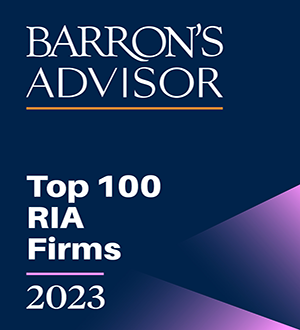7 Fundamentals for Business Owners Considering the Sale of Their Business
By Argent Wealth Management, LLC on May 9, 2024

Pondering the sale of your business may periodically bubble-up to the top of your thoughts. Or, perhaps, it is always front and center in your mind. Near or far, here are 7 fundamentals to consider when the timing is right for you.
1. Set Your Goals:
Whether you’re a serial entrepreneur selling your latest startup or a long-term owner who built a business over decades, knowing what you want to achieve in a transaction is critical to a successful outcome. Most owners have a clear sale price goal for the transaction, but knowing your intangible goals can be equally as important. Are you selling the company so you can spend time doing something else? Is there a role you want to continue playing in the company post-transaction? Are there specific people or aspects of the business that you want to specifically address? Spending time honestly thinking through the “why” of a transaction and sharing your goals with your trusted advisors is a great step towards achieving a successful outcome.
2. Exit on Your Terms:
All deals have nuance and your specific goals should drive your exit strategy. For example, if the business will transfer to family, you should consider whether a gift, sale, or combination of both is most appropriate and how it impacts financing options and within any trusts. If real assets are available, you may consider separating them from the operating business and leasing them back for ongoing income to the seller and a reduced purchase price for the buyer. Countless strategies can be deployed within the confines of the deal to serve the seller’s long-term financial goals beyond the transaction price.
3. Transactions and Transitions:
Inevitably, selling a company will bring change to how you think about your time and wealth. While the transaction itself can be stressful and all-consuming, it’s important to plan through the transition and consider your lifestyle post-transaction. If you are looking to pursue additional business ventures, making sure your sale doesn’t limit your future goals is critical. If you are looking to shift your time and attention to other pursuits (i.e., philanthropical, passion projects, family, etc.), then thinking through what those things will be before the transaction will help to create a more successful transition.
4. Asset Location Matters:
No matter what stage of the sale process you’re in, thinking about your pre-transaction and post-transaction holding structure and estate plan can unlock incremental value to your wealth. Engaging trusted, qualified advisors to discuss financial, estate, and tax planning strategies is crucial to protecting your wealth from the eroding effects of the US tax code. Are you aware of the pre-exit estate and wealth transfer planning that needs to be in place early to take advantage of tax strategies (i.e., sale to Grantor Trust, Charitable Remainder Trust, Donor Advised Funds, Dynasty Trusts, etc.)?
5. Plan, Plan, Plan :*
Working with your financial advisor to review your financial goals and implement the right long-term planning creates significantly better outcomes. Your advisor can help you consider how to create a comprehensive plan utilizing a wide range of tools and strategies including investments, insurance, gifting, tax, and more to put your wealth to work for you. A few critical rules for any seller to know include:
- Annual gifting limits are going up to $18,000 per recipient in 2024
- The federal estate exemption is rising from $12,920,000 in 2023 to $13,610,0000 in 2024 (a married couple can pass up to $27,220,000 to heirs before federal estate tax applies)
- The GST exemption is also rising to $13,610,000 in 2024
- The federal estate/GST exemption is currently scheduled to revert to about $6,840,000 per spouse in 2026 so opportunities to shift wealth outside of the estate can be impactful
*Source: https://www.irs.gov, 2/2024
6. Family Matters:
Considering how a future transaction will impact each member of your family creates an opportunity to mitigate potential conflicts and disputes before they occur. It starts with aligning with any family members who are currently involved in your business to understand their long-term desires and qualifications for staying in the business.
In other words, are they ready and do they want to fill your shoes? What other unique family dynamics may impact the business succession or estate planning (especially buy/sell arrangements and funding mechanisms)? Finally, have you thought about estate equalization issues between heirs who have financial ties to the business vs those who do not? Your advisors should help you consider all your beneficiaries and impacted parties to ensure you fully understand how they will be treated post-transaction.
7. Know How to Say No:
No matter what level of wealth is generated from a transaction, it’s important for business owners to think about how relationships may change after a transaction. Many owners are surprised by how many people or institutions will approach them with requests for time or financial gifts. Planning how you will and will not give your time and money to these requests is critical to achieving long-term goals. This is especially true with family and friends. By working with an experienced financial advisor, you can establish effective plans for how to deal with these types of requests.
Please reach out to one of our advisors if you have questions about selling your business or just to explore these seven considerations in further detail.
Sign up to receive more information about Argent's Services and Solutions.
Argent Wealth Management, LLC is a group comprised of investment professionals registered with Hightower Advisors, LLC, an SEC registered investment adviser. Some investment professionals may also be registered with Hightower Securities, LLC (member FINRA and SIPC). Advisory services are offered through Hightower Advisors, LLC. Securities are offered through Hightower Securities, LLC.
This is not an offer to buy or sell securities, nor should anything contained herein be construed as a recommendation or advice of any kind. Consult with an appropriately credentialed professional before making any financial, investment, tax or legal decision. No investment process is free of risk, and there is no guarantee that any investment process or investment opportunities will be profitable or suitable for all investors. Past performance is neither indicative nor a guarantee of future results. You cannot invest directly in an index.
These materials were created for informational purposes only; the opinions and positions stated are those of the author(s) and are not necessarily the official opinion or position of Hightower Advisors, LLC or its affiliates (“Hightower”). Any examples used are for illustrative purposes only and based on generic assumptions. All data or other information referenced is from sources believed to be reliable but not independently verified. Information provided is as of the date referenced and is subject to change without notice. Hightower assumes no liability for any action made or taken in reliance on or relating in any way to this information. Hightower makes no representations or warranties, express or implied, as to the accuracy or completeness of the information, for statements or errors or omissions, or results obtained from the use of this information. References to any person, organization, or the inclusion of external hyperlinks does not constitute endorsement (or guarantee of accuracy or safety) by Hightower of any such person, organization or linked website or the information, products or services contained therein.
Click here for definitions of and disclosures specific to commonly used terms.


